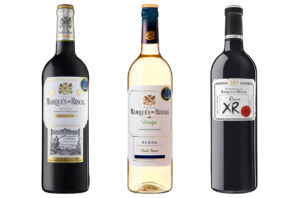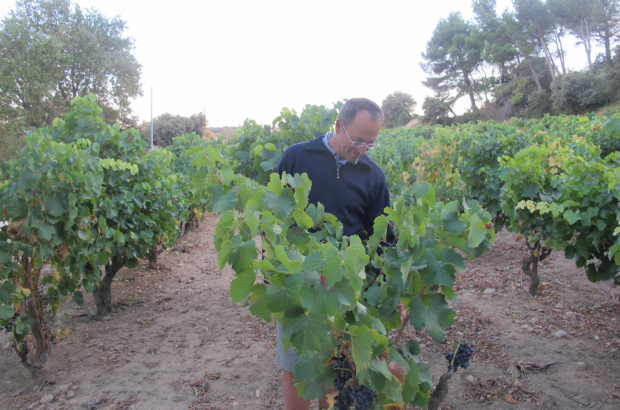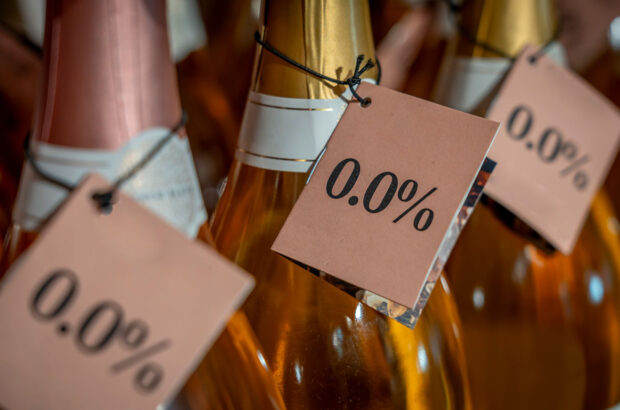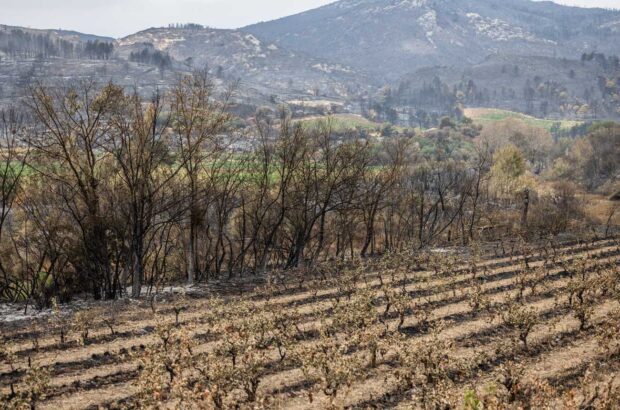Successful vineyards can sometimes become factories: vines are planted and then harvested to exhaustion, producing large quantities of grapes before being uprooted as soon as their yields start to decline, to make way for the next generation of workhorse plants. Marqués de Riscal does something very different. The iconic Spanish winemaker, which traces its roots back to 1858 and was voted Best Vineyard in the World in 2024, places a special value on its old vines. Marqués de Riscal is even using them to breathe fresh life into some of its younger vineyards and help them adapt to the changing climate.
Throughout Europe and many other parts of the globe, vines are grafted onto American rootstocks to protect the plants from phylloxera, a tiny louse that devastated the vineyards of France in the 1860s and those of Spain soon afterwards. American rootstocks are resistant to the pest, protecting the vines.

Counterintuitively, Marqués de Riscal regrafted its vines using material from older vineyards.
The experts at Marqués de Riscal noticed vines planted in the 1970s were not performing as well as their older vines. Instead of grubbing up the 1970s vineyards, they left the rootstocks in place and regrafted them – but crucially, not with new plant material from a nursery. Counterintuitively, Marqués de Riscal regrafted using vines from the older vineyards, going against the prevailing orthodoxy of the time.
The project began in Rueda in 1995, before extending into Marqués de Riscal’s Rioja homeland in 1998. Following its initial success, the project was accelerated in 2017, with 180ha of vines now regrafted in this way.
Adapting to the changing climate
Since this method preserves the existing root system, high-quality grapes can be harvested from the regrafted vines in only a few years. And by grafting with older vine material, the quality of the fruit is improved, giving winemakers the best of both worlds. Marqués de Riscal is also using traditional pruning techniques to minimise diseases among its 500ha of old vines in Rioja Alavesa.
Focusing on the quality of its vines and their ability to adapt to the changing climate led Marqués de Riscal to switch to organic farming. It already has 350ha certified as organic in Rueda, 370ha in Rioja and more than 100ha currently in conversion. Marqués de Riscal believes the techniques make its vines more resilient in the face of longer droughts, higher temperatures and less predictable weather.
The winemaker is also going further by adopting regenerative farming practices, which aim to improve soil health by encouraging biodiversity. Increasing the range of creatures in the vineyard can help to combat pests naturally, while raising the amount of organic matter in the soil helps to limit erosion.

Marqués de Riscal traces its roots back to 1858.
Tasting the results in the glass
All the vineyards that Marqués de Riscal owns in the Rueda region have held organic certification since 2018. Its Marqués de Riscal Verdejo 100% Organic 2024 is a flagship example of organic white winemaking, made solely from the native Verdejo variety. On the nose, fennel and hints of aniseed mingle with white flowers and fresh grass, while the palate displays Verdejo’s celebrated long, persistent finish.
The winery’s Marqués de Riscal Reserva 2020 is a classic Rioja, with its Tempranillo grapes coming from old vines planted before the 1970s. Expressive liquorice, cinnamon and black pepper on the nose lead into ripe and concentrated fruit on the palate, balanced by 22 months’ ageing in American oak.
The XR by Marqués de Riscal 2020 pays tribute to the special barrels that its winemakers used to mark in chalk with the letters ‘XR’ to indicate their exceptional quality. The blend of Tempranillo and Graciano is aged for 25 months in American oak, producing a complex Rioja that’s fresh and easy-drinking, yet displays firm structure and polished tannins.
Taken together, all these steps – from regrafting and pruning through to organic farming and regenerative agriculture – are designed to prolong the life of these precious old vines. And connoisseurs can notice the benefits when they open a bottle.

Read more about Marqués de Riscal
Tackling the challenges of climate change
Celebrating Marqués de Riscal at Decanter’s London Fine Wine Encounter 2024
The world’s best vineyards 2024 revealed
Discover more about Marqués de Riscal
Connect on
Facebook | Instagram | X | Youtube
![]()
![]()








